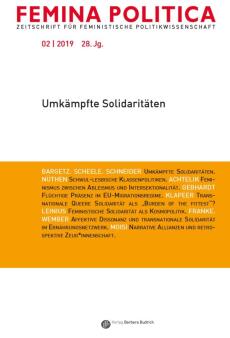Interdisciplinary ZEUGS Lecture series in the summer semester 2019!

Authoritarian policies in the form of right-wing populism and extremism are increasingly establishing themselves as a global form of governance and far-reaching governance rationality, and they are increasingly challenging modern democracies. Discourses and practices of exclusion and contempt for humanity are the consequences of successful mobilization on the edges of and against democracy. Even though the dangers for modern democracies of restricting abortion, asylum and immigration laws and a general dismantling of rule-of-law principles are obvious, the threats to global democratic conditions and the political stability of Western societies are difficult to foresee and pose new challenges to both politics and science.
This is especially true for social gender relations, because authoritarian discourses and practices have a particular influence on the construction of gender roles and gender power relations. However, there has been little systematic analysis of the role and functions of women in this context, of how authoritarian political and social designs attack social plurality, difference, and diversity, and of the constitutive role of mobilization against gender and supposed 'gender ideology'.
The aim of this lecture series is therefore to take up this research desideratum and to ask from an interdisciplinary perspective to what extent authoritarian discourses and practices attack and change democratic gender relations and thus represent a fundamental attack on democracy.
The poster of the interdisciplinary ZEUGS lecture series can be viewed here.




